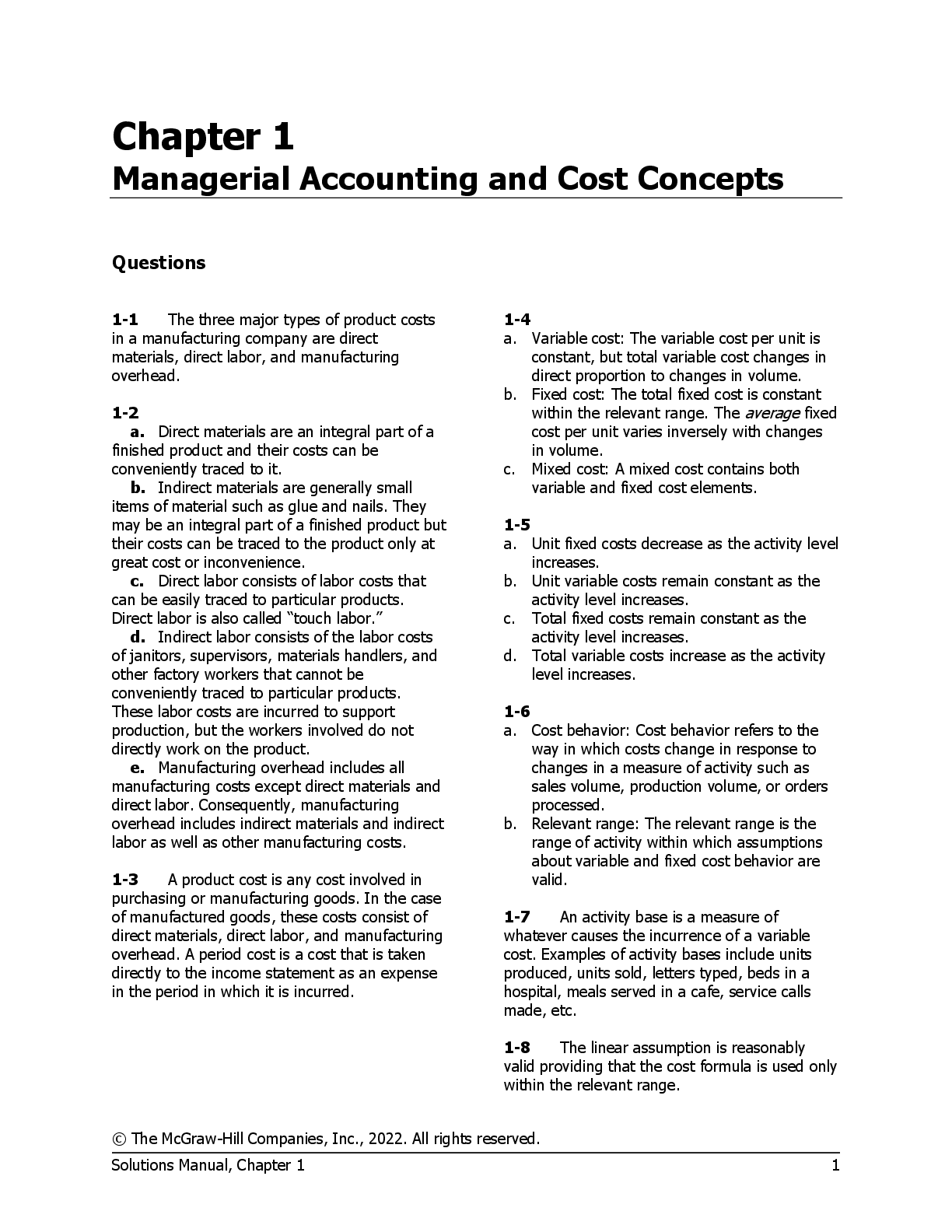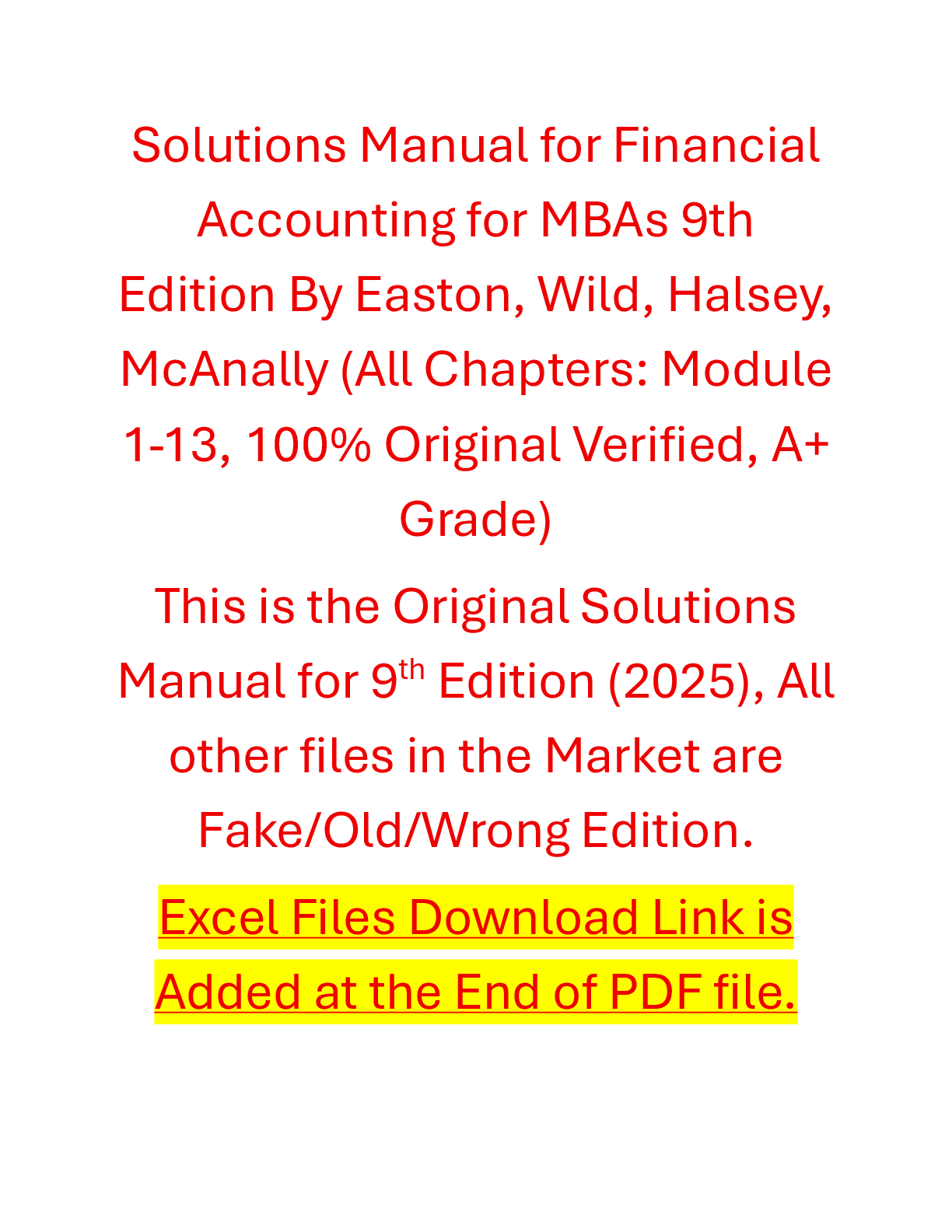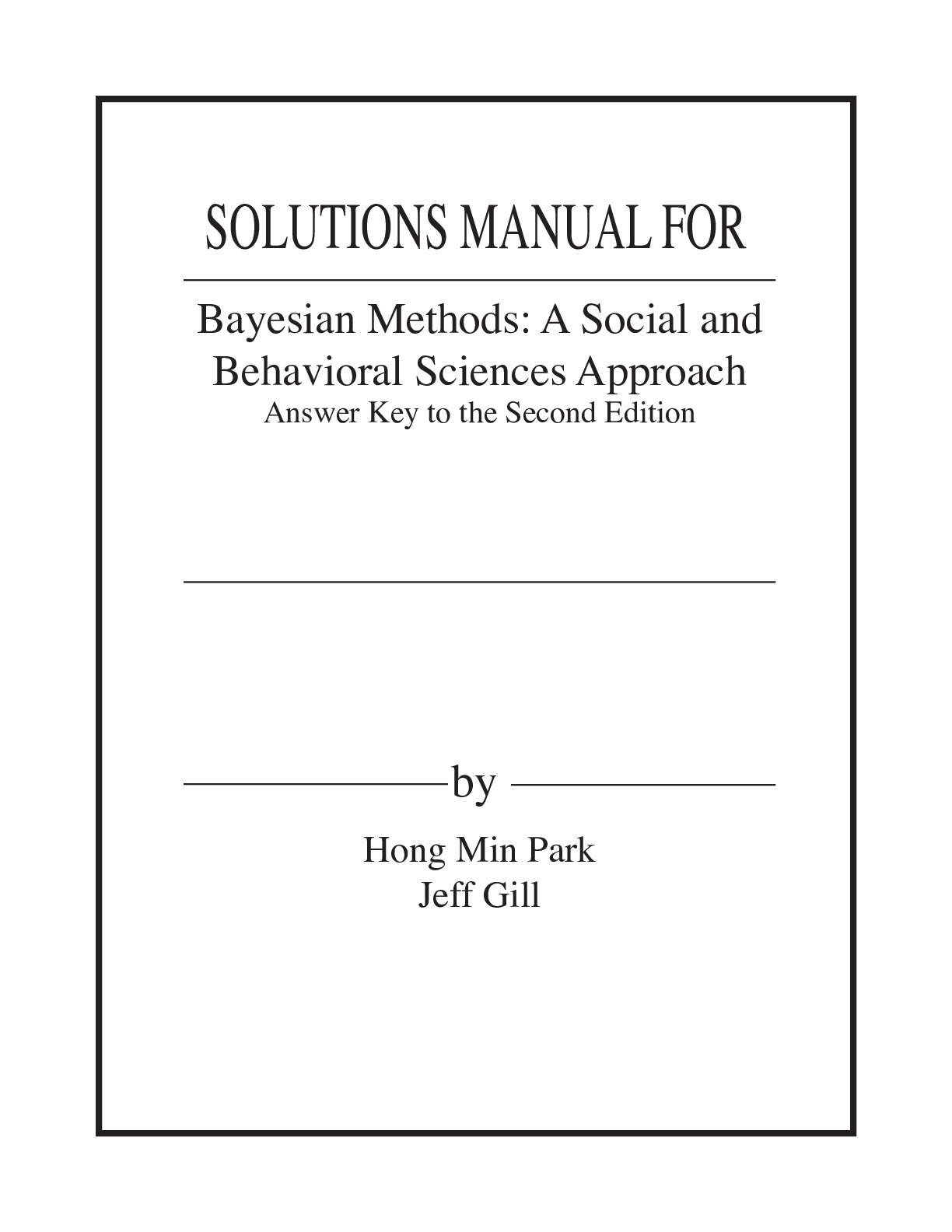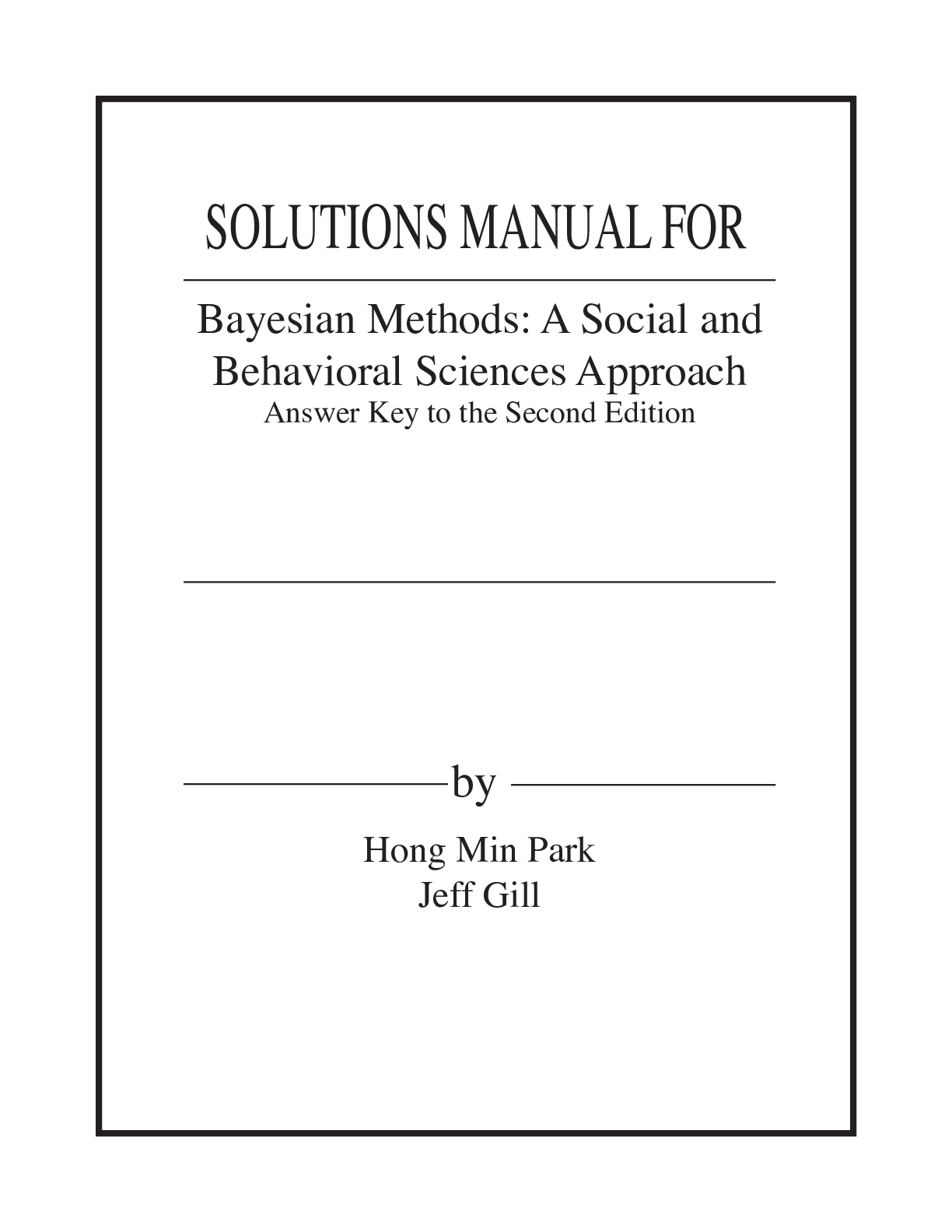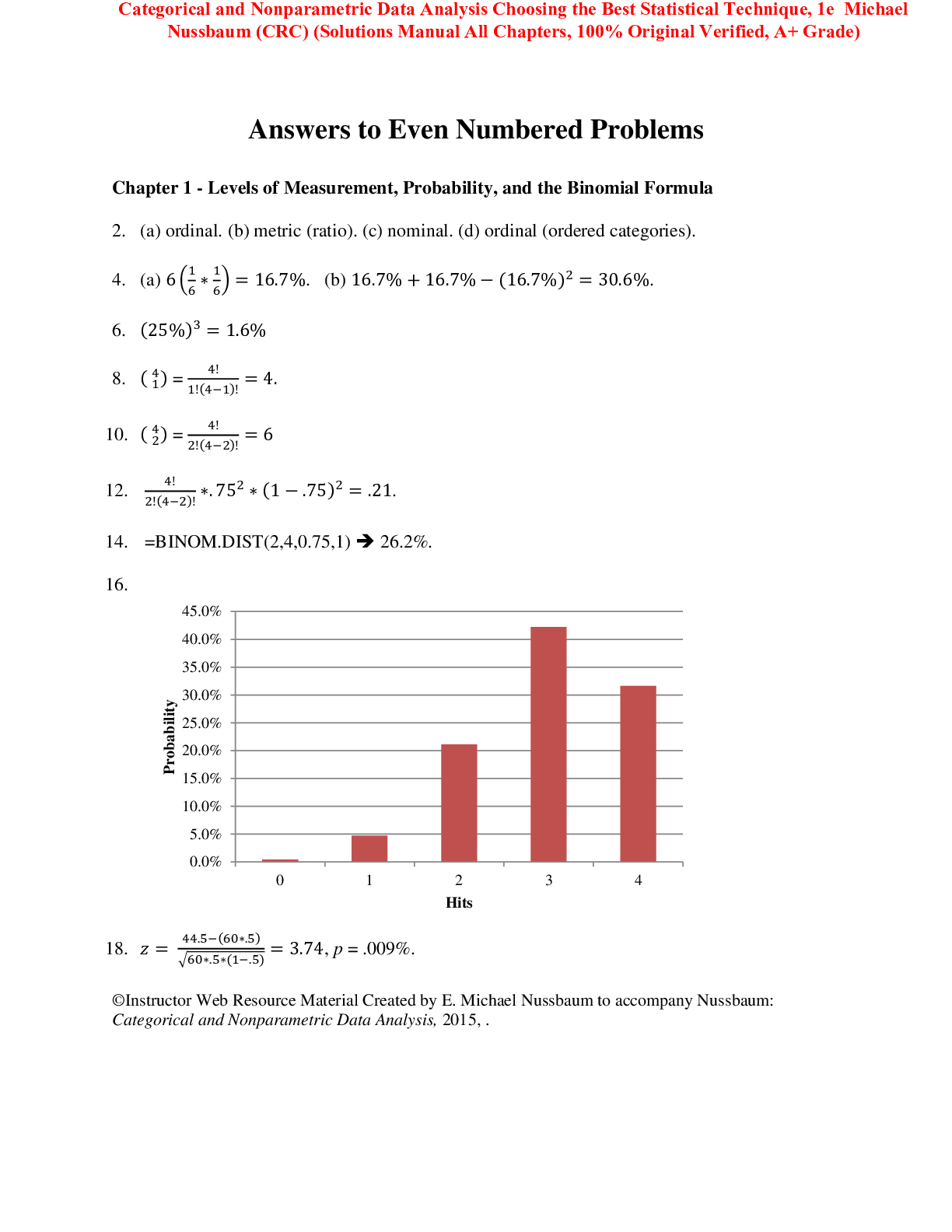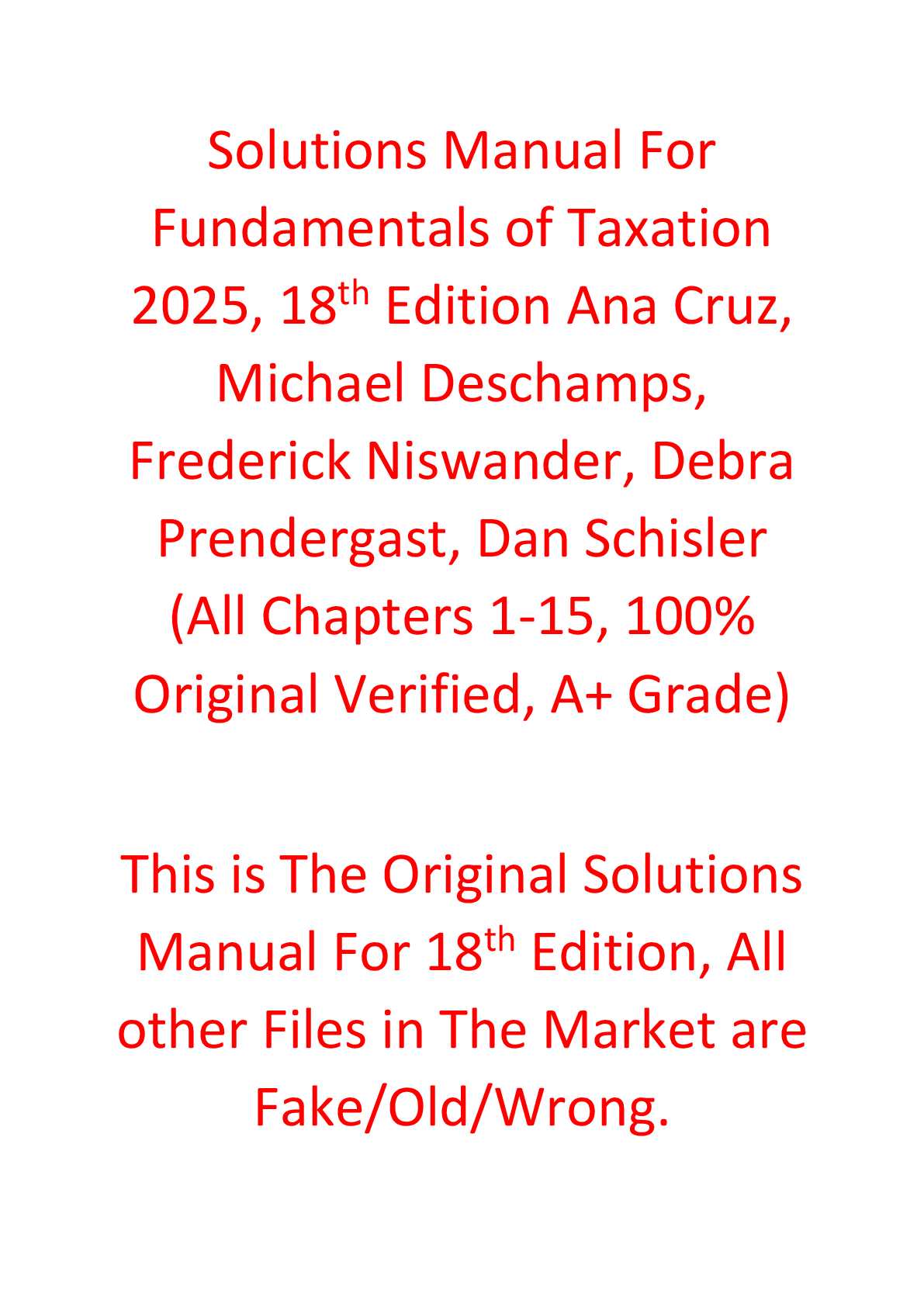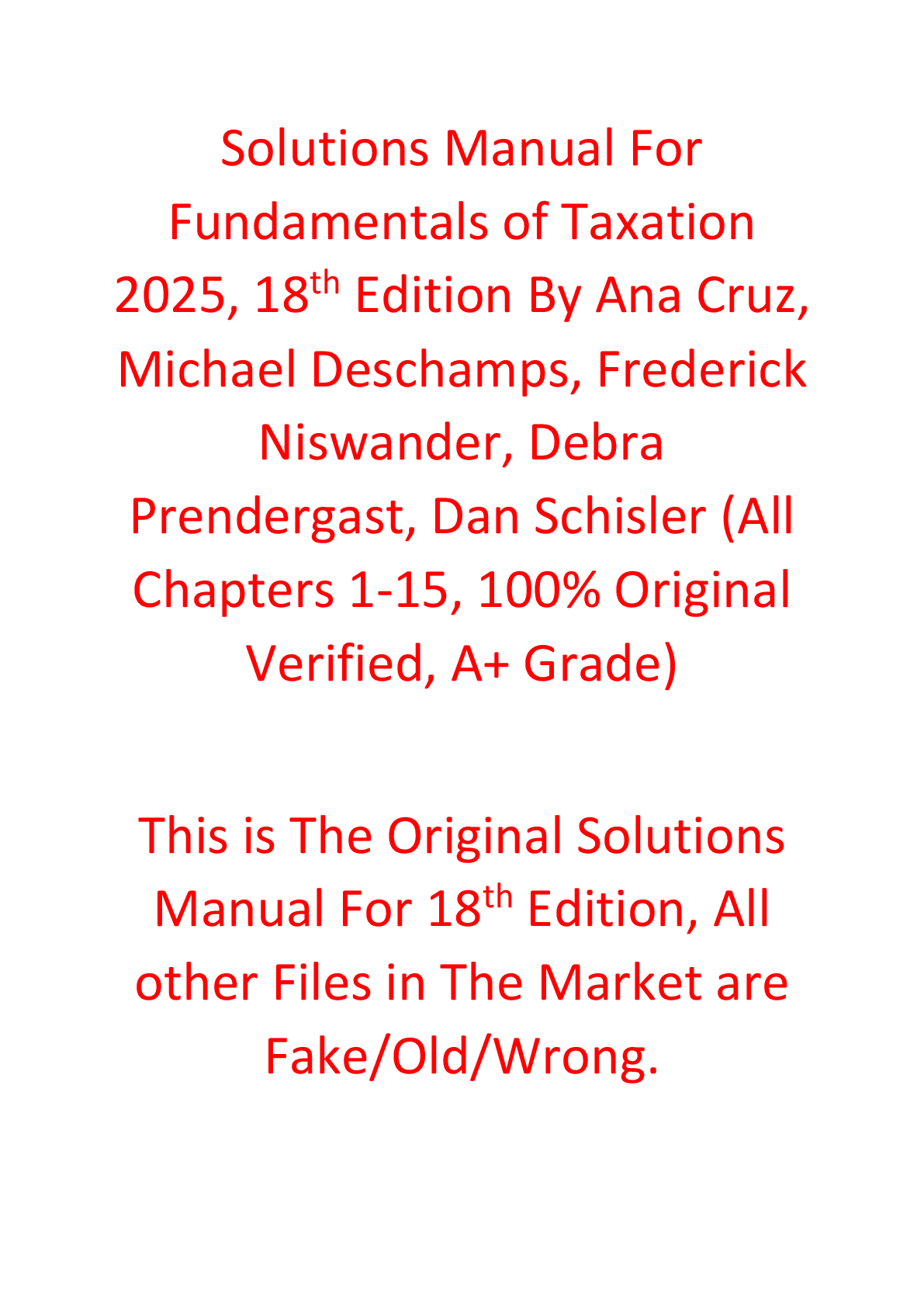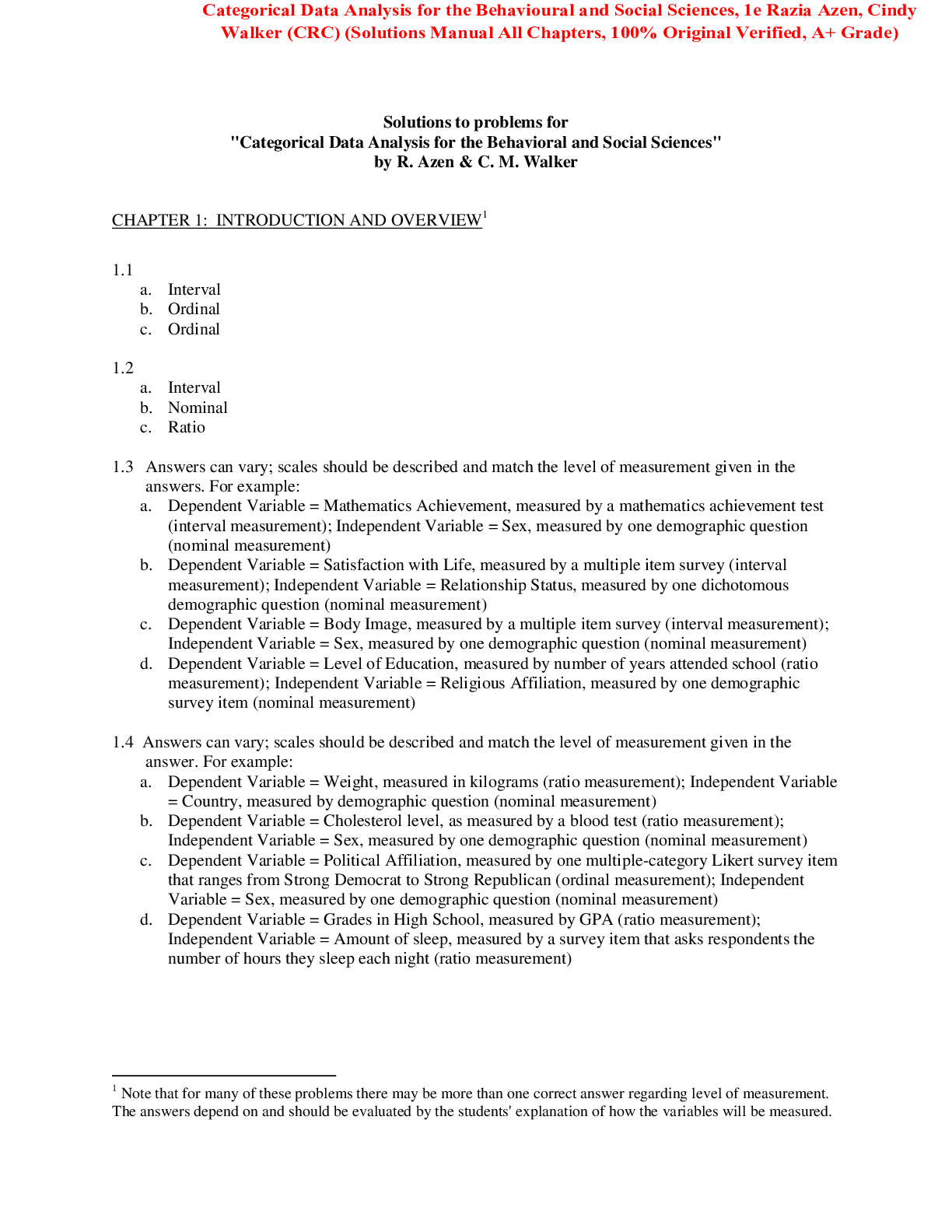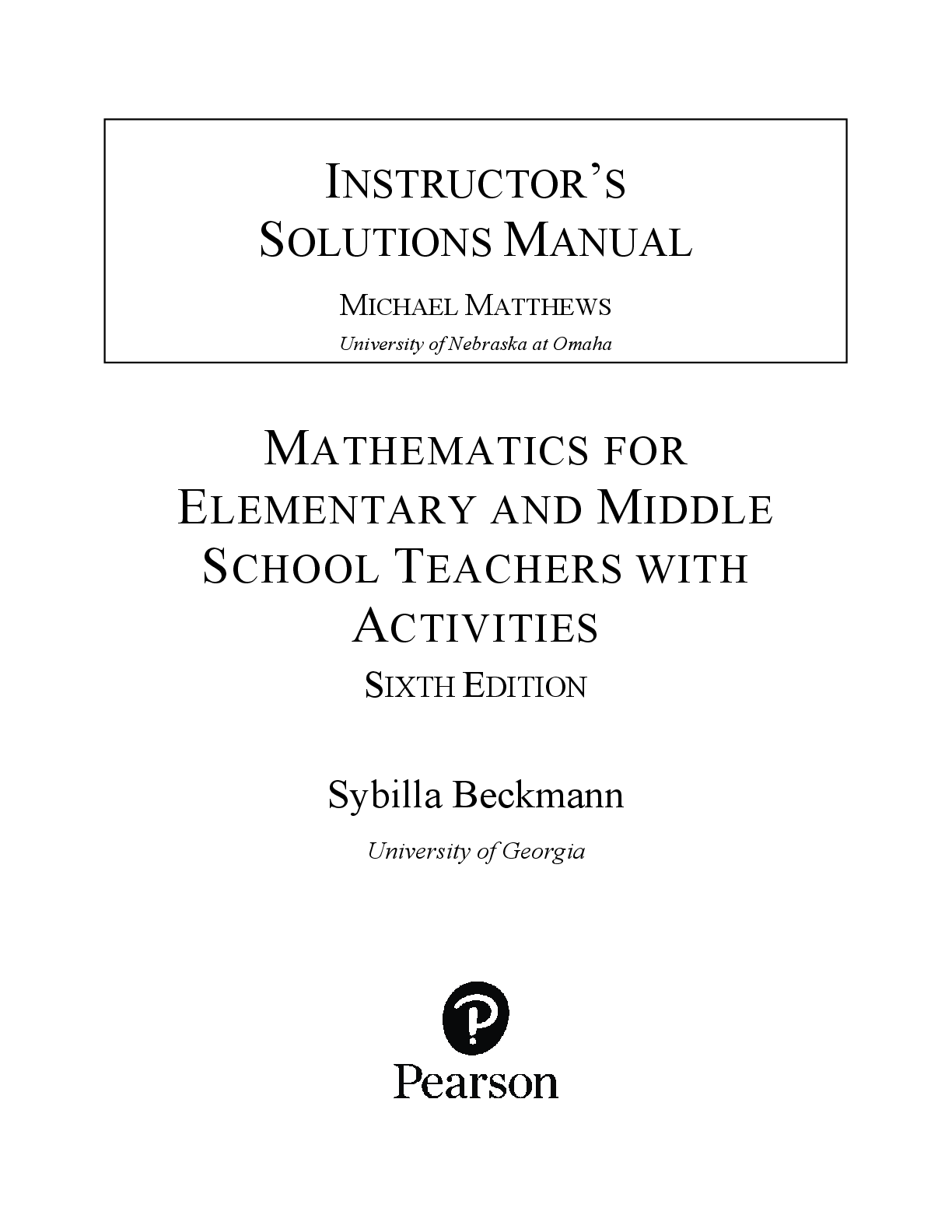Mathematics > SOLUTIONS MANUAL > Mathematics for Elementary and Middle School Teachers with Activities, 6th edition By Sybilla Beckma (All)
Mathematics for Elementary and Middle School Teachers with Activities, 6th edition By Sybilla Beckmann (Solutions Manual)
Document Content and Description Below
Preface Solving Problems and Explaining Solutions 1. Numbers and the Base-Ten System 1.1 The Counting Numbers 1.2 Decimals and Negative Numbers 1.3 Reasoning to Compare Numbers in Base Ten 1... .4 Reasoning about Rounding CHAPTER REVIEW PROBLEMS 2. Fractions and Problem Solving 2.1 Defining and Reasoning about Fractions 2.2 Reasoning about Equivalent Fractions 2.3 Reasoning to Compare Fractions 2.4 Reasoning about Percent CHAPTER REVIEW PROBLEMS 3. Addition and Subtraction 3.1 Interpretations of Addition and Subtraction 3.2 The Commutative and Associative Properties of Addition, Mental Math, and Single-Digit Facts 3.3 Why the Standard Algorithms for Addition and Subtraction in Base Ten Work 3.4 Reasoning about Fraction Addition and Subtraction 3.5 Why We Add and Subtract with Negative Numbers the Way We Do CHAPTER REVIEW PROBLEMS 4. Multiplication 4.1 Interpretations of Multiplication 4.2 Why Multiplying by 10 Is Special in Base Ten 4.3 The Commutative and Associative Properties of Multiplication, Areas of Rectangles, and Volumes ofBoxes 4.4 The Distributive Property 4.5 Properties of Arithmetic, Mental Math, and Single-Digit Multiplication Facts 4.6 Why the Standard Algorithm for Multiplying Whole Numbers Works CHAPTER REVIEW PROBLEMS 5. Multiplication of Fractions, Decimals, and Negative Numbers 5.1 Making Sense of Fraction Multiplication 5.2 Making Sense of Decimal Multiplication 5.3 Extending Multiplication to Negative Numbers 5.4 Powers and Scientific Notation CHAPTER REVIEW PROBLEMS 6. Division 6.1 Interpretations of Division 6.2 Division and Fractions and Division with Remainder 6.3 Why Division Algorithms Work 6.4 Fraction Division from the How-Many-Groups Perspective 6.5 Fraction Division from the How-Many-Units-in-1-Group Perspective 6.6 Dividing Decimals CHAPTER REVIEW PROBLEMS 7. Ratio and Proportional Relationships 7.1 Motivating and Defining Ratio and Proportional Relationships 7.2 Solving Proportion Problems by Reasoning with Multiplication and Division 7.3 The Values of a Ratio: Unit Rates and Multipliers 7.4 Proportional Relationships 7.5 Proportional Relationships versus Inversely Proportional Relationships 7.6 Percent Revisited: Percent Increase and Decrease CHAPTER REVIEW PROBLEMS 8. Number Theory 8.1 Factors and Multiples 8.2 Even and Odd 8.3 Divisibility Tests 8.4 Prime Numbers 8.5 Greatest Common Factor and Least Common Multiple 8.6 Rational and Irrational Numbers CHAPTER REVIEW PROBLEMS 9. Algebra 9.1 Numerical Expressions 9.2 Expressions with Variables 9.3 Equations 9.4 Solving Algebra Word Problems with Strip Diagrams and with Algebra 9.5 Sequences 9.6 Functions 9.7 Linear and Other Relationships CHAPTER REVIEW PROBLEMS 10. Geometry 10.1 Lines and Angles 10.2 Angles and Phenomena in the World 10.3 Circles and Spheres 10.4 Triangles, Quadrilaterals, and Other Polygons CHAPTER REVIEW PROBLEMS 11. Measurement 11.1 Concepts of Measurement 11.2 Length, Area, Volume, and Dimension 11.3 Error and Precision in Measurements 11.4 Converting from One Unit of Measurement to Another CHAPTER REVIEW PROBLEMS 12. Area of Shapes 12.1 Areas of Rectangles Revisited 12.2 Moving and Additivity Principles About Area 12.3 Areas of Triangles 12.4 Areas of Parallelograms and Other Polygons 12.5 Shearing: Changing Shapes Without Changing Area 12.6 Area and Circumference of Circles and the Number Pi 12.7 Approximating Areas of Irregular Shapes 12.8 Contrasting and Relating the Perimeter and Area of Shapes 12.9 Using the Moving and Additivity Principles to Prove the Pythagorean Theorem CHAPTER REVIEW PROBLEMS 13. Solid Shapes and Their Volume and Surface Area 13.1 Polyhedra and Other Solid Shapes 13.2 Patterns and Surface Area 13.3 Volumes of Solid Shapes 13.4 Volume of Submersed Objects versus Weight of Floating Objects CHAPTER REVIEW PROBLEMS 14. Geometry of Motion and Change 14.1 Reflections, Translations, and Rotations 14.2 Symmetry 14.3 Congruence 14.4 Constructions with Straightedge and Compass 14.5 Similarity 14.6 Dilations and Similarity 14.7 Areas, Volumes, and Similarity CHAPTER REVIEW PROBLEMS 15. Statistics 15.1 Formulating Statistical Questions, Gathering Data, and Using Samples 15.2 Displaying Data and Interpreting Data Displays 15.3 The Center of Data: Mean, Median, and Mode 5.4 Summarizing, Describing, and Comparing Data Distributions CHAPTER REVIEW PROBLEMS 16. Probability 16.1 Basic Principles of Probability 16.2 Counting the Number of Outcomes 16.3 Calculating Probabilities of Compound Events 16.4 Using Fraction Arithmetic to Calculate Probabilities CHAPTER REVIEW PROBLEMS Downloads Bibliography Index Credits [Show More]
Last updated: 10 months ago
Preview 1 out of 323 pages

Buy this document to get the full access instantly
Instant Download Access after purchase
Buy NowInstant download
We Accept:

Reviews( 0 )
$25.00
Can't find what you want? Try our AI powered Search
Document information
Connected school, study & course
About the document
Uploaded On
Nov 14, 2022
Number of pages
323
Written in
Additional information
This document has been written for:
Uploaded
Nov 14, 2022
Downloads
1
Views
236


